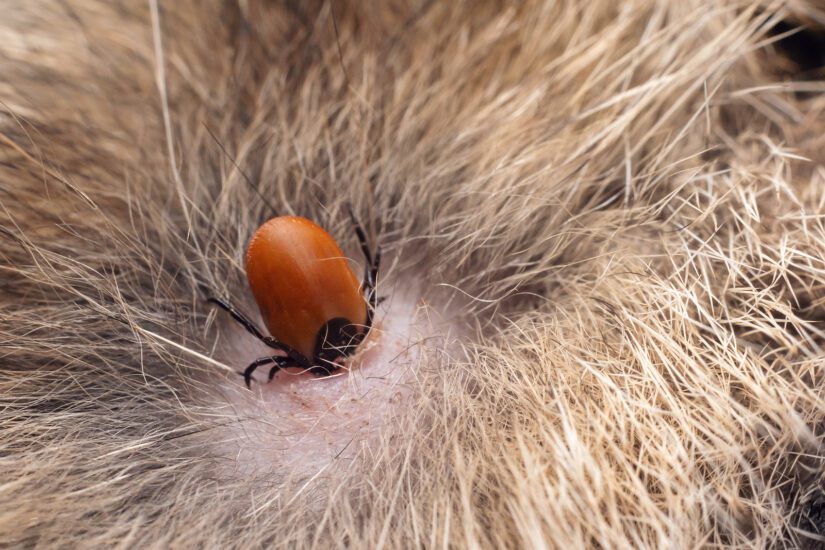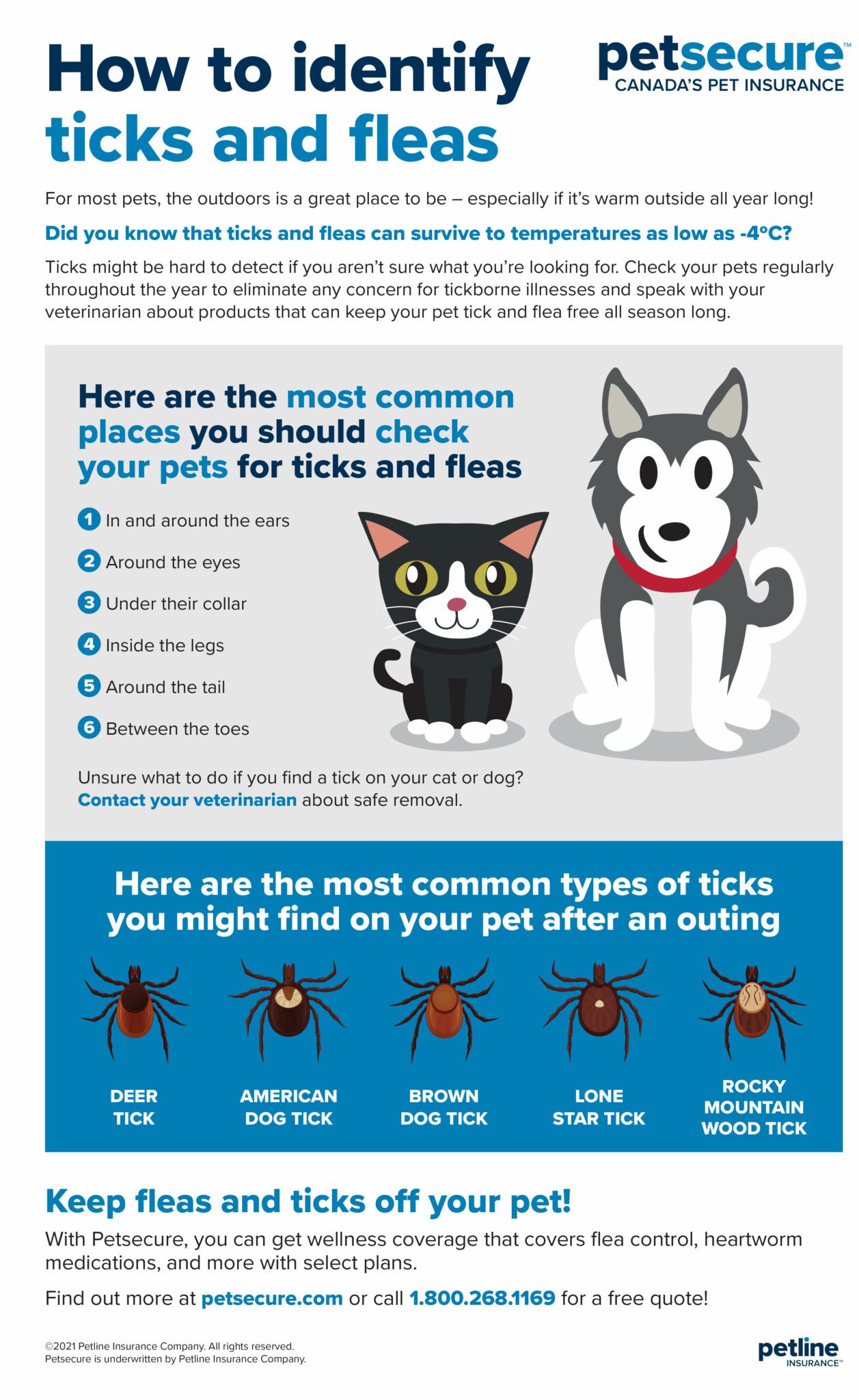As spring draws closer, more and more people are enjoying walks and hikes with their pets. But BC SPCA veterinarian, Dr. Kyla Townsend cautions pet guardians that there may be some pesky parasites, such as ticks and fleas, lurking outdoors this time of year.

“Ticks are external parasites that feed off the blood of unlucky hosts, including humans, dogs and cats,” says Townsend. “Tick bites and tick-borne diseases, such as Lyme disease, can be hard to detect and signs of tick-borne disease may not appear for seven to 21 days or longer after a tick bite.”
While not all ticks carry Lyme disease, if you think your dog has picked up a tick, contacting your veterinarian is highly recommended as there are other tick-borne diseases.
“Your veterinarian can remove the tick for you or provide information on safe methods of removal and any necessary follow-up,” says Townsend. “Either way, guardians should ensure the tick is removed as soon as possible to reduce the chance of disease transmission.” Townsend cautions guardians that old-school methods like burning the tick out or attempting to suffocate it with oil should never be used.
“The risk of tick-borne diseases for pets in B.C. is still low, but it has been growing over the past several years,” says Townsend. “Regular tick checks of your pet can help to reduce that risk, as well as tick prevention medications, especially for pets who spend a lot of time in wooded areas.”
If you suspect your pet has been bitten by a tick, Townsend advises to watch them closely for changes in behaviour or appetite or for any unusual illness such as fever, lameness, lethargy, bruising or bleeding. Ask your vet about a blood test they can do to determine if your pet was exposed to a tick-borne disease.

Steps pet guardians can take include:
- Dog tick prevention. Talk with your veterinarian about using tick preventatives on your pet — there are a number of safe medications and prevention is the best medicine.
- Check your pets daily for ticks — especially if they spend time outdoors. Make sure to check armpits, between the toes and other warm protected areas on their bodies.
- If you find a tick on your pet, remove it. Talk to your vet about safe ways to remove it and any necessary follow-up or have it removed by your veterinarian right away.
- Talk to your vet about a blood test they can do to determine if your pet was exposed to a tick-borne disease.
- Ask your vet to conduct a tick check at each exam.
- Talk to your vet about tick-borne diseases in your area.
- Reduce tick habitat in your yard.
- Learn more about other parasites, such as fleas, that can also be problematic for pets and humans if not properly addressed.
“Unlike lice, which are species-specific, fleas and ticks don’t discriminate – they’ll bite anything with a heartbeat,” Townsend says, adding deer and other wild animals can also carry the parasite.
Download the “How to identify ticks and fleas” poster. (PDF)

